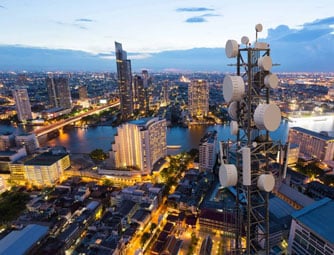Post-Pandemic Trends In Remote Work
October 11, 2021

The pandemic wrought enormous changes to the way people work. Just a few years ago, remote work was a rarity. In 2018, only 7% of employees in the U.S. even had the option of working away from the office. During the pandemic, remote working become normal to millions of people who never imagined they would be away from the office for so long.
Soon, many Americans will have spent two full years working remotely. Such a major change will have permanent effects. Post-pandemic, there will be no return to exactly the way things were before. Many of the trends in remote work will continue to grow even as the world moves toward a post-pandemic reality.
While the shift to remote working due to the pandemic was unplanned, that doesn’t mean it was necessarily a negative change. Though some people disliked remote work and wanted to be back at the office, many others loved working from home. Remote working offers a flexibility that was impossible under the old model of work. Simply skipping out on the daily commute is a huge boon to many professionals.
Perhaps more significantly, remote work opens up the possibility of living far away from the office, or even traveling while working. Employees may now be able to move to places with lower cost of living or other major advantages, rather than having to live within a short distance of their workplace. In fact, 46% of remote workers plan to move to a new location within a year.
These advantages mean that many of the trends of remote work are here to stay because so many professionals like the new style of work. Surveys show that 73% of workers want flexible options for remote work to continue. This is a major reason why it is estimated that in five years, fully 27.7% percent of the workforce will be working remotely.
However, the future of remote work does not lie with a simple continuation of the patterns that existed during the pandemic. Even while workers supported the continuation of remote work options, 67% also wanted more in-person time with their teams. This means that a form of hybrid work, in which both remote and in-person options are possible, will play a larger role going forward.
The rise of remote work has also raised certain challenges that must be met. Research shows that remote work causes teams to become more siloed. While team members still communicate with each other at high rates, communication with those outside the teams drops. This change makes networking harder, which in turn can damage innovation and impede career development. In the future, networking and communication in general may require greater conscious effort.
Working remotely can also disrupt work-life balance. When working from home, the natural divide that once existed between work and leisure becomes blurred. This can increase stress and create a sense among employees that they never get a true break from the job. That’s why 51% of employees report concerns about work-life balance. Employers must respond by giving workers back control over free time, such as by discouraging calls after normal work hours.
In addition, the post-pandemic evolution of remote work will cause changes in the areas of cybersecurity, as companies navigate risks posed by remote accessing of data, and in assessing the performance of employees who are not in the office. Cloud-based HR technology will be increasingly adopted, and companies will become more likely to use freelancers. Many other areas of the business world will also be affected.
Naturally, there will also be developments caused by remote work anticipated by no one. Just like the pandemic itself, the continued evolution in remote work will undoubtedly have surprising results. This means that both workers and employees must become more adept at responding to what will be an ever-changing professional landscape.
The pandemic irrevocably changed society. The relationship professionals had to work was disrupted, in ways both good and bad. Going forward, both companies and individual professionals will have to learn how to navigate this new and ever-evolving world of remote work, along with the opportunities and challenges it brings.
At NextGen Global Resources, LLC., we recognize how important post-pandemic developments in remote work are to the telecom industry. If you are looking for a telecom job, please check our website for open internal positions.




























